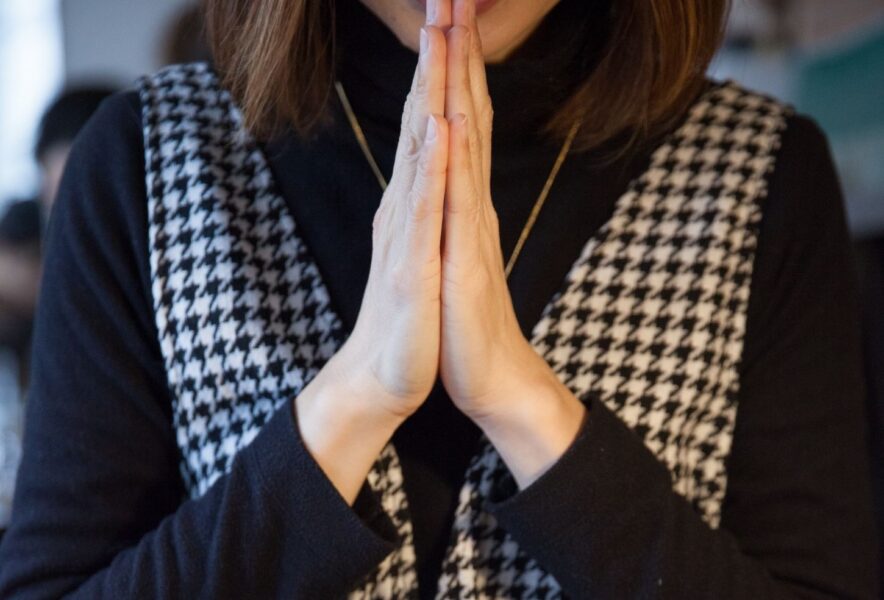Gratitude at the Heart of Japanese Food Culture
“Itadakimasu” is much more than a simple phrase said before meals in Japan. This expression of gratitude honors the ingredients, the people who prepared the meal, and nature itself. Translating roughly to “I humbly receive,” this phrase reflects the deep cultural values of respect and appreciation that are integral to Japanese society.
The Origins of “Itadakimasu”
The practice of saying “Itadakimasu” before meals can be traced back to Japan’s agrarian past. In ancient times, people depended on the land for sustenance, and food was viewed as a gift from nature. The word “itadaku” (頂く) originally referred to the act of holding something above one’s head as a gesture of respect, symbolizing the highest level of gratitude.
Over time, this act became a verbal acknowledgment of appreciation, particularly for food. The practice is also deeply tied to Shinto and Buddhist philosophies. Shinto emphasizes reverence for nature, including the spirits believed to inhabit food. Meanwhile, Buddhism promotes respect for all living things, recognizing that every meal represents a cycle of life. Together, these beliefs shaped the Japanese approach to food as more than sustenance—it is a gift to be cherished.
The Meaning Behind “Itadakimasu”
When people say “Itadakimasu,” they express three key forms of gratitude:
- Gratitude for the Lives Taken
“Itadakimasu” acknowledges the lives of animals, plants, and fish sacrificed for nourishment. This sentiment reflects Buddhist principles, which teach mindfulness and respect for all living beings. Saying “Itadakimasu” reminds us that eating is not just about consuming but about appreciating the life that sustains our own. - Gratitude for Human Effort
Every meal involves the work of many people, including farmers, fishers, transport workers, and cooks. By saying “Itadakimasu,” diners honor this collective effort and show respect for the hands that brought the meal to the table. - Gratitude for Nature’s Blessings
Japan’s culinary traditions are deeply connected to nature and the changing seasons. From the first rice harvest to fresh vegetables in summer, each meal is a celebration of nature’s bounty. Saying “Itadakimasu” is a way of thanking the earth for its abundance and recognizing the balance between humans and the environment.
How to Say “Itadakimasu”
The act of saying “Itadakimasu” is simple yet meaningful.
- Sit with Proper Posture: Show respect for the meal by sitting upright.
- Bring Your Hands Together: Place your palms together in a prayer-like gesture (gassho) and bow slightly.
- Say “Itadakimasu” Out Loud: Express your gratitude with sincerity before picking up your chopsticks or taking your first bite.
This ritual is observed whether dining alone or in a group. When eating with family or friends, everyone often says “Itadakimasu” together, creating a shared moment of appreciation.
The Importance of Teaching “Itadakimasu” to Children
In Japanese households, children are encouraged to say “Itadakimasu” before meals from a young age. Parents teach the importance of this phrase by explaining its meaning and practicing it consistently during family meals. This instills a sense of gratitude in children that stays with them throughout their lives.
Japan’s school lunch programs (kyushoku) also play a crucial role in reinforcing the value of “Itadakimasu.” Before eating, students say the phrase together as a class. Additionally, they often learn where their food comes from, such as the farmers who grew their rice or the fishermen who caught their fish. This helps children understand the effort behind their meals, fostering a lifelong appreciation for food and those who provide it.
Saying “Gochisousama Deshita” After Meals
Just as “Itadakimasu” is said before eating, “Gochisousama deshita” is said after finishing a meal.
The word “gochisou” (ご馳走) originally referred to the act of running around (chisou) to gather ingredients for a meal. This highlights the effort involved in creating a meal. Adding the respectful suffix “sama” elevates the phrase, expressing gratitude for the meal and the care behind it.
Saying “Gochisousama deshita” shows appreciation for the meal itself, the hands that prepared it, and the shared experience of dining.
When dining with family, saying “Gochisousama” thanks the person who cooked the meal. At restaurants, it is customary and polite to say “Gochisousama deshita” when leaving. This simple phrase acknowledges the staff’s efforts and shows respect for the dining experience.
Conclusion
“Itadakimasu” and “Gochisousama deshita” are much more than meal-time phrases—they are expressions of gratitude deeply rooted in Japanese culture. By incorporating these practices into daily life, meals become more than moments of nourishment; they become opportunities to connect with nature, appreciate others, and reflect on the value of life.
The next time you sit down to a meal, try saying “Itadakimasu” and “Gochisousama.” These simple words might transform your dining experience into something richer, more mindful, and deeply fulfilling.

Comment